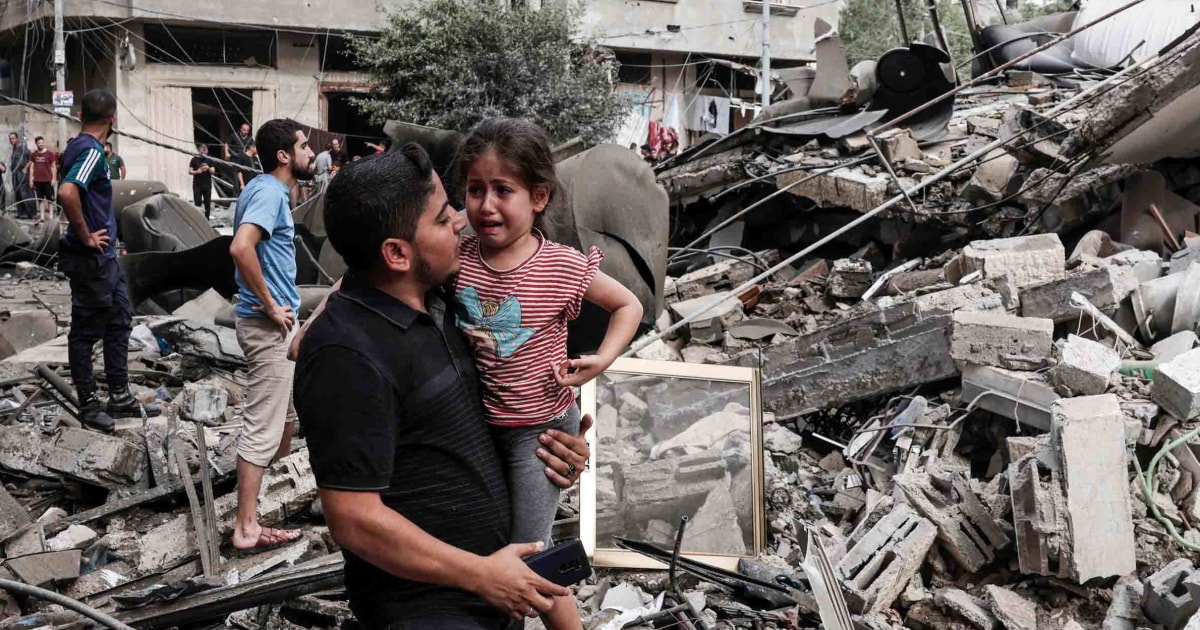By Mike Corder and Julia Frankel —
The Associated Press
The highest court of the United Nations on Monday opened historic hearings on the legality of the Israeli occupation of lands where the Palestinians want to build a state, placing 15 international judges at the heart of the Arab-Israeli conflict.
Six days of hearings are scheduled at the International Court of Justice, involving an unprecedented number of countries, as Israel continues its devastating attack on the Gaza Strip.
Although the case occurs in the context of the war between Israel and Hamas, it focuses rather on Israel's 57-year occupation of the West Bank, Gaza and East Jerusalem.
Palestinian representatives, who will speak first on Monday, will argue that the Israeli occupation is illegal because it has violated three key principles of international law, the Palestinian legal team told reporters on Wednesday.
They say Israel has violated the ban on territorial conquest by annexing large tracts of occupied land, violated the Palestinians' right to self-determination and imposed a system of racial discrimination and apartheid.
“We want to hear new words from the court,” said Omar Awadallah, head of the U.N. organizations department at the Palestinian Foreign Ministry.
“They had to consider the word genocide in the South Africa case,” he said, referring to a separate case before the court.
“Now we want you to consider apartheid.”
Awadallah said an advisory opinion from the court “will give us many tools, using peaceful methods and tools of international law, to confront the illegalities of the occupation.”
[Attacks in Syria, Iraq, Yemen and Lebanon intensify tensions in the Middle East]
The court will likely
take months to rule
.
But experts say the decision, while not legally binding, could profoundly impact international jurisprudence, international aid to Israel and public opinion.
“The case will present before the court a litany of accusations and grievances that will likely be uncomfortable and embarrassing for Israel, given the war and the already highly polarized international environment,” said Yuval Shany, a law professor at Hebrew University and a senior fellow at the Institute. of Democracy of Israel.
Israel is not expected to speak during the hearings, but could submit a written statement.
Shany said Israel will likely justify the current occupation citing security reasons, especially in the absence of a peace agreement.
It likely points to the Oct. 7 attack in which Hamas-led Gaza militants killed 1,200 people across southern Israel and took 250 hostages back to the enclave.
“There is a narrative that the territories that Israel withdraws from, such as Gaza, can potentially become very serious security risks,” Shany said.
“If anything, October 7 underscored traditional Israeli security logic to justify endless occupation.”
But Palestinians and leading human rights groups say the occupation goes far beyond defensive measures.
They say it has morphed into an apartheid system, reinforced by the construction of settlements on occupied lands, which gives Palestinians second-class status and is designed to maintain Jewish hegemony from the Jordan River to the Mediterranean Sea.
Israel rejects any accusation of apartheid.
The case comes to court after the UN General Assembly voted by a wide margin in December 2022 to ask the world court for a non-binding advisory opinion on
one of the world's longest and thorniest disputes
.
The request was promoted by the Palestinians.
Israel vehemently opposed it.
Fifty countries abstained from voting.
In a written statement before the vote, Israel's ambassador to the UN, Gilad Erdan, called the move "scandalous", the UN "morally bankrupt and politicized" and any potential court decision "completely illegitimate."
After the Palestinians present their arguments, 51 countries and three organizations (the League of Arab States, the Organization of Islamic Cooperation and the African Union) will address the panel of judges in the Great Hall of Justice.
Disputes over territories
Israel seized the West Bank, east Jerusalem and the Gaza Strip in the 1967 Middle East war. Palestinians seek all three areas for an independent state.
Israel considers the West Bank to be a disputed territory, whose future should be decided through negotiations.
It has built 146 settlements
, according to the watchdog group Peace Now, housing more than 500,000 Jewish settlers.
The West Bank settler population has grown more than 15% in the past five years, according to a pro-settler group.
Israel has also annexed east Jerusalem and considers the entire city its capital.
Another 200,000 Israelis live in settlements built in east Jerusalem, which Israel considers neighborhoods of its capital.
The city's Palestinian residents face systematic discrimination, making it difficult for them to build new homes or expand existing ones.
The international community overwhelmingly views the settlements as illegal.
Israel's annexation of east Jerusalem, home to the city's most sensitive holy sites, does not enjoy international recognition.
Repeated calls to Israel
It is not the first time the court has been asked to give an advisory opinion on Israeli policies or to declare an occupation illegal.
In 2004, the court said the separation barrier Israel had built across east Jerusalem and parts of the West Bank was “contrary to international law.”
He also called on Israel to immediately stop construction.
Israel has ignored the ruling.
[How the Israel-Hamas war is dividing Latino evangelicals in the US]
In a 1971 case that the Palestinian legal team will likely rely on, the court issued an advisory opinion determining that South Africa's occupation of Namibia was illegal and said South Africa had to immediately withdraw from the country.
Furthermore, late last month, the court ordered Israel to do everything possible to avoid death, destruction and any acts of genocide in its campaign in Gaza.
South Africa brought the case accusing Israel of genocide, a charge Israel denied.
South African representatives are scheduled to speak on Tuesday.
The country's ruling party, the African National Congress, has long compared Israel's policies in Gaza and the West Bank to the white minority apartheid regime in South Africa, which restricted most blacks to their "homelands" before to finish in 1994.

